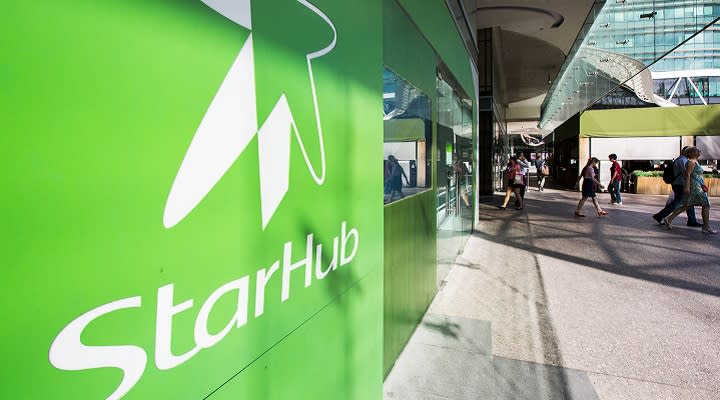Citi upgrades StarHub to 'neutral' due to undemanding valuations on the back of share price correction

“Our target price remains unchanged at $1.16, with our upgrade driven by StarHub’s share price correction," says Citi's Pineda.
Citi Research analyst Arthur Pineda has upgraded his call on StarHub to “neutral” from “sell” previously after StarHub’s share price declined some 19% year-to-date (ytd).
“Our target price remains unchanged at $1.16, with our upgrade driven by StarHub’s share price correction rather than a fundamental change in outlook,” the analyst writes.
“Valuations are indeed undemanding at over 1 standard deviation (s.d.) below [StarHub’s] 10-year mean on both P/E ratio and EV/ebitda against Citi’s already conservative estimates,” he adds.
The telco’s share price decline comes despite the market’s pivot to defensive names with Singapore Telecommunications (Singtel) delivering a share price return of 15% ytd, the analyst points out in his Oct 3 report.
StarHub’s share price had also underperformed the benchmark Straits Times Index (STI) by -19%. It had also underperformed its telco peers, Singtel and Netlink NBN Trust by -34% and -10% ytd respectively.
To Pineda, StarHub should have been relatively better-positioned owing to its international roaming contributions, 5G average revenue per user (ARPU) accretion, and the contracted nature of its revenues.
However, the rising expenses and investments into the FY2022 ending December owing to StarHub’s planned business transformation program had outweighed the near-term revenue benefits from market re-openings and the migration towards 5G. The rising expenses and investments had also resulted in a weaker earnings outlook into the FY2022, which could be behind the underperformance in the telco’s share price ytd.
“In addition, we believe StarHub is far more exposed to retail investor participation as it is not present in FTSE STI or MSCI Singapore indices. Unlike a large number of institutional investors that may need to rotate investments across sectors and remain invested, retail investors may opt to cash out altogether. This we believe explains the lack of rotation into the name,” says Pineda.
To the analyst, StarHub’s net profit after tax (NPAT) for the 2HFY2022 is “still likely to soften” as its transformation-related expenses pick up.
“We thus see room for the street to still see a markdown in consensus estimates with Citi’s FY2022 estimates 37% below consensus,” he says.
“Uncertainties remain if any transformation-related expenses will be recognised/carry over into FY2023,” he adds. “As such, while we concede that the stock appears inexpensive even relative to our below-street expectations, we see re-rating headwinds with the street still potentially marking down profit estimates.”
That said, any further material share price downside is protected by a 5%-6% yield outlook for FY2022-2023, notes Pineda. This is still superior compared to most Singapore companies, even if it is below mean levels in terms of yield spreads vs the Singapore 10-year bond yield.
“With a further rise in 10-year interest rates from the current 3.5% in view with the US Fed’s tightening stance, we may see the market as potentially wanting higher dividends from StarHub. The company had seen an average 3.0% yield premium to Singapore 10-year bonds. This compares against the current 2.5% spread with the recent increase in bond yields,” he adds.
See Also:
Click here to stay updated with the Latest Business & Investment News in Singapore
Broker's Digest: Grab Holdings, Digital Core REIT, CapitaLand Ascott Trust, ST Engineering
Analysts keep 'buy' on Nanofilm as it sees 'significant runway' for company to capture new customers
Get in-depth insights from our expert contributors, and dive into financial and economic trends

 Yahoo Finance
Yahoo Finance 